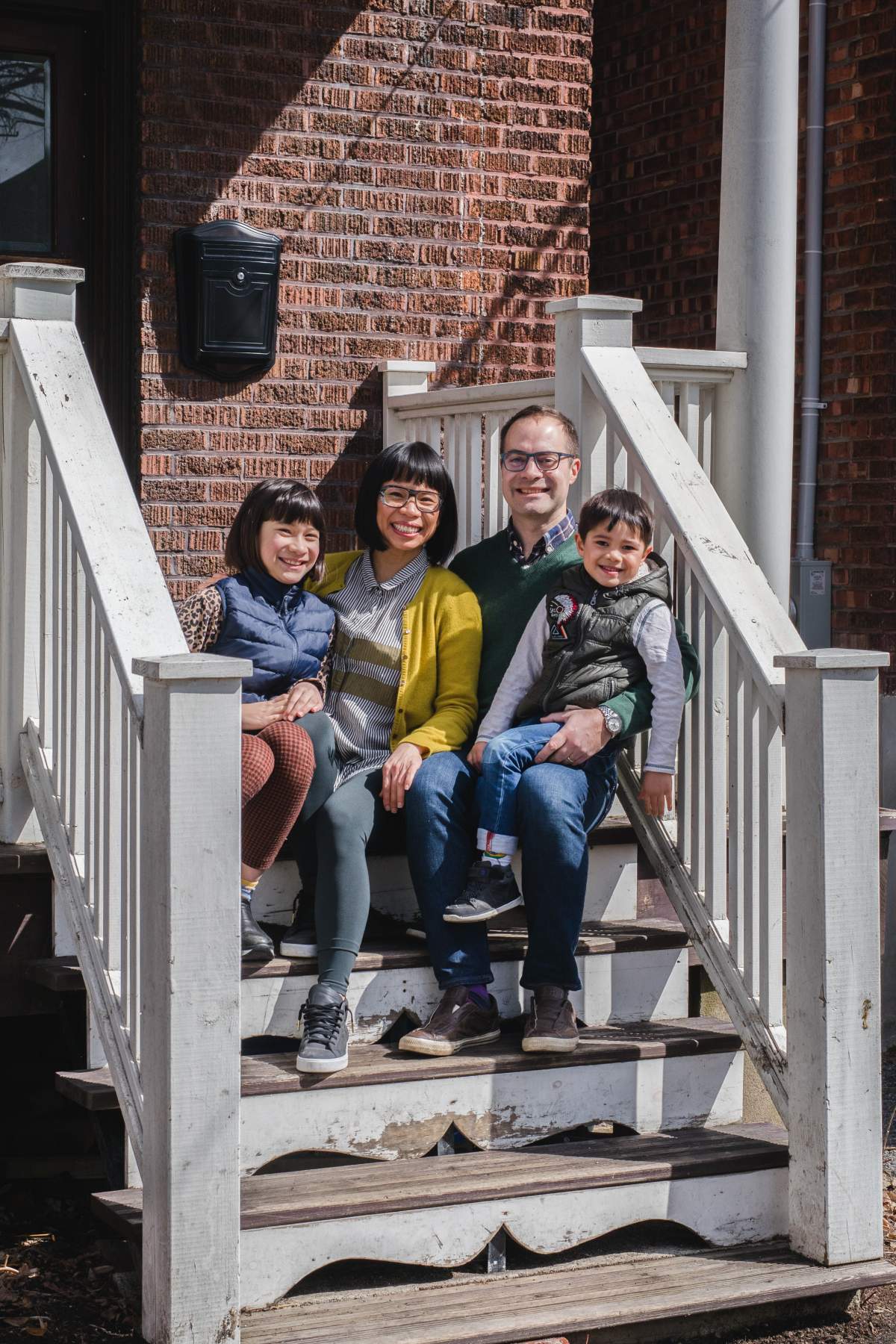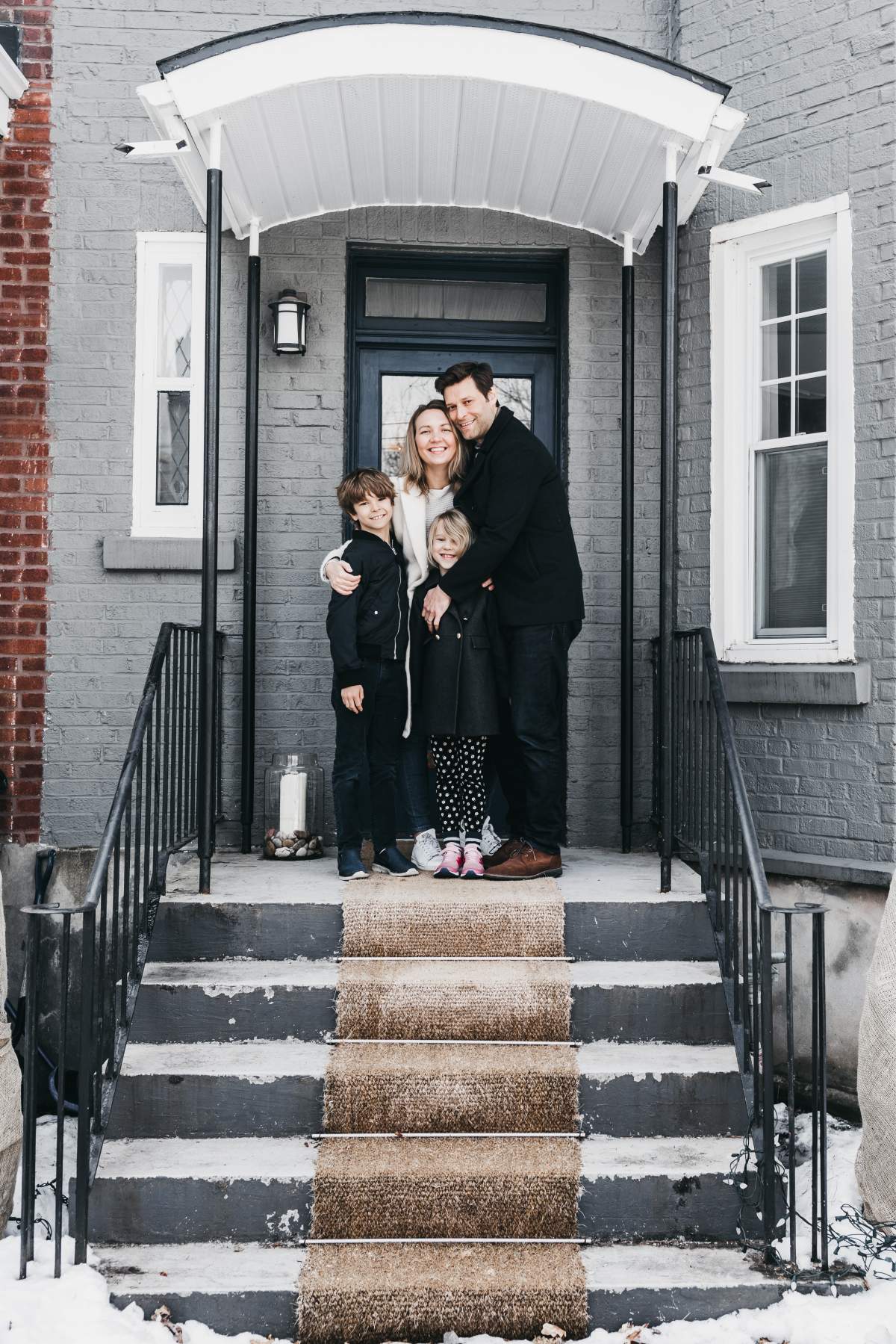Some families are still struggling with self-isolation amid COVID-19, even if they understand why it’s necessary.

But some Montreal photographers are helping families find a way to not only cope, but to give back to the community.
“Visiting families in their home where they’re isolated, having them come out to their front steps staying 10 feet back, and taking a portrait of this time in their life right now,” NDG family photographer Michelle Little explained of the idea while out in her neighbourhood, meeting some of the participants.
It’s all for free. Little says more than a 120 families have signed up so far for her Front Steps project, since she posted the invitation on her website. So she has two other photographers working with her, including Jen Arnold, also from NDG.
“You can be in your pyjamas, you can be disheveled, you can get dressed and look nice — whatever you like,” she told Global News.

Get breaking National news
Both say the goal is to help families break up the monotony of being isolated and to bring some company to those who might feel alone.
“Some people, they’re at home pregnant or they’re at home with a baby,” Little pointed out, “and it’s very lonely.”
For more than a week now, families across Quebec have been asked to stay at home unless it’s absolutely necessary to leave. Schools are closed and all non-essential businesses will be shuttered for weeks, all in an effort to help arrest the spread of the novel coronavirus.
It’s a social challenge Quebec Premier François Legault acknowledges is difficult, but he’s encouraging residents to stay strong.
“Our children and grandchildren will remember how we won this battle so let’s make them proud let’s continue our efforts together,” the premier said Wednesday during his daily COVID-19 update from Quebec City.
The other reason Little is doing this project is to help people remember.
“How are you going to explain it to people who didn’t live through it?” she wondered. “It’s crazy.”
Some families agree that a visual record of what’s happening is important, especially for children.
“Because I think at least for my son he won’t really remember — maybe vaguely,” Yilin Chen, one of the participants, pointed out.
Erica Lehrer, professor of history at Concordia University, agrees that photographs do help.
“Historians know that memory is fragile and fickle, and documenting and creating archives in a stable form … can help us take an honest look in the mirror later on,” she pointed out, “to see how things actually were rather than how we might be able to or want to recall them.”
There’s just one catch to taking part in the project: participants are asked to make a donation to the Depot Community Food Centre in NDG.







Comments
Want to discuss? Please read our Commenting Policy first.